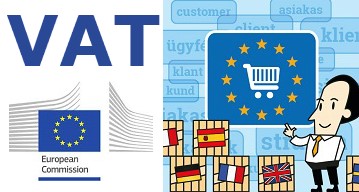Tackling VAT fraud related to e-commerce

Changes to the value added tax (VAT) regulatory framework for e-commerce introduced the destination principle for cross-border business-to-consumer (B2C) transactions.
Identification of the online businesses supplying goods and services to customers in other Member States is going to be key when it comes to ensuring compliance with VAT rules and addressing e-commerce VAT fraud.
Parliament voted on two Commission proposals in plenary in December. Once the new VAT regulatory framework for e-commerce applies as of January 2021 (Council Directive (EU) 2017/2455), VAT fraud in cross-border e-commerce will be difficult for the tax authorities where consumers are located to detect and tackle, because they will be relying on information from suppliers in another Member State that could be evading their VAT obligations.
E-commerce payments generally involve intermediaries (payment service providers (PSPs), e.g. credit and direct debit providers) holding data relating to the payments (as provided for in the 2015 Payment Services Directive 2 (Directive (EU) 2015/2366).
